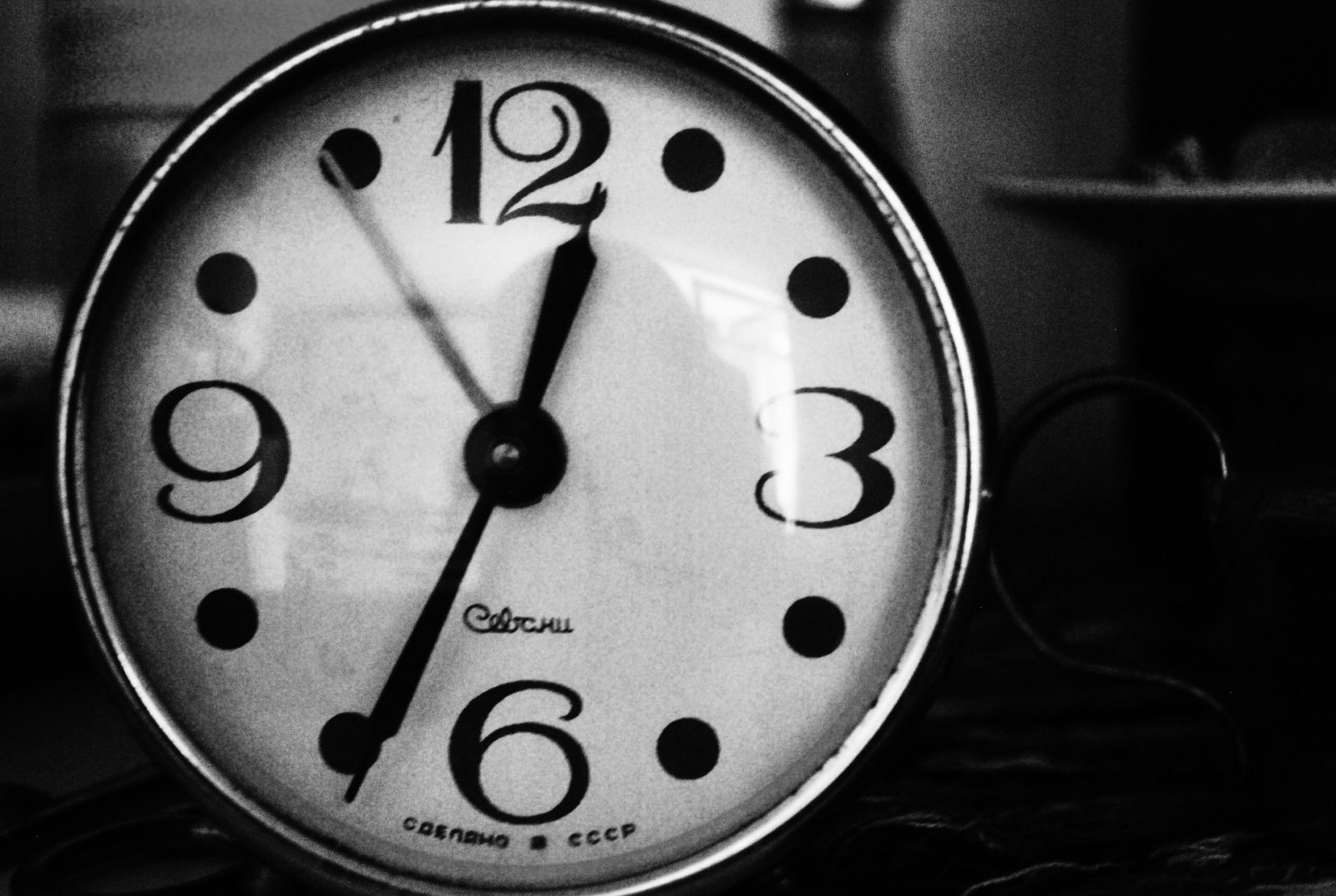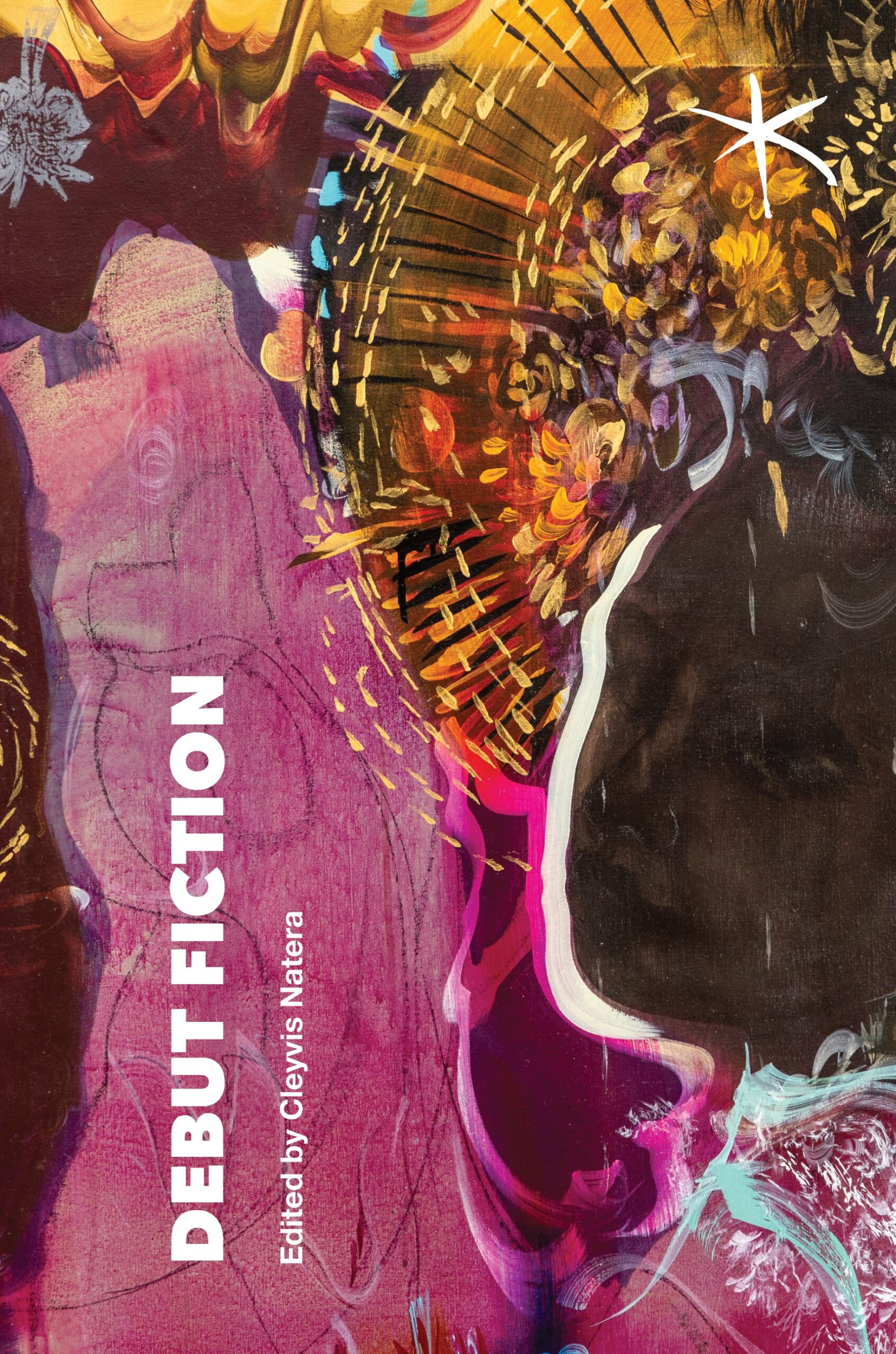
As a reluctant owner of a Great Russian Soul, I had always been interested in time. Nothing gave me more pleasure than ruminating over its passage. It made me susceptible to lachrymose movies like Beaches, time travel narratives, melancholy European novels. Since the age of ten, I wrote letters to myself to be opened in ten years, produced recordings of my voice to listen to in some distant future, and later, in college, shot video of my roommates on the cusp of graduation. At first they humored me, gamely performing for the camera the daily tasks we would never experience together again. Rachel stirred her macaroni and cheese in slow motion, Natalia showed off her Passover babka, Dana pointed out a bed that housed a dissertation, sneakers, perfume, clumped sweatshirts, and the remains of lunch. They tolerated my repeated references to the movie, Reality Bites.
But after a while they got fed up with my intoning, “This is the last time we will ever…” or “In twenty years, when we are old, we will look back on this night.”
“Shut up already,” they said. “You’re just wallowing.”
And it was true. Watching this video did not contain in it even a quarter of the pleasure of making it. Of the bittersweet gratification of capturing time, with the knowledge that it would soon escape the grasp.
Almost twenty years later, when I was getting ready to become a mother, I found myself mourning the end of my pre-mother days in the same theatrical way. I would bid adieu to small acts of freedom. The finalities I noted: the last time my parents, my husband and I would watch movies at their house deep into the night, the last vacation to Turks and Caicos with my husband where I forced us to go out even if we were too tired (“Soon we won’t have a choice!”), my last time—at least for a long while– at a writers’ residency where I basked in solitude and emerged with practically no new work. Instead, I meandered through the woods, thinking, Goodbye, this life. I could swear I heard the response of birds and deer, nature singing sad sweet songs to a bygone age. My husband tolerated this slightly better than my roommates had—his appreciation for the Great Russian Soul was for some reason more respectful. But all the musing was starting to wear on his nerves. “I don’t know what’s on the other side either,” he would say. “But truly, you are torturing us.”
What did await on the other side of parenthood? Books about the issue were cheerfully vague or smug or (in the memoirs I gravitated to) ominously gloomy. They were folksy (“Ready to board that cute little passenger on the mother ship?”) or mildly offensive cloaked under male sensitivity (“It’s best to stifle your comments about whales—beached or otherwise”). I stopped reading those early on. What I searched for were references to time, to how time would change the shape of my life. For a new mother, I was told there would be NO TIME left for: showering, grooming, sex, conversation, friendships, reading, thinking, dressing in anything decent, sleeping, watching a film in its entirety, watching a film with any babies in distress, watching any film without a happy ending (the days of Lars von Trier, Bergman, Fellini and anything by Godard were over, as was finishing a novel by Jonathan Franzen, Middlemarch or, heck, a book of any length striving for Ideas. Even the writer Anne Lamott, famous for her encouraging writing manual, Bird By Bird, reported in a lecture to reading solely mysteries six years after the birth of her son). I imagined time as something snatched away, yanked from me. But there was no text that could truly explain the consequences of that, of what that would feel like. And most important: why time feels different in motherhood. It seemed—and this is probably due to the fact that all the parenting books were written in retrospect under improved conditions– all the authors dealt with time no less abstractly than I always had. The very act of looking back on new motherhood, had somehow changed their own perceptions on what they have lived through. Time was truncated, altered to serve sassy (“Hey girlfriend, it’s okay to feel blue”) prose. No longer ingrained in present, I could see it floating away on the wings of narrative.
The cliché repeated with ominous regularity: “The days are long but the years are short.” I read this line in books and heard it from parents who uttered it as though they had conceived of it themselves. It proliferated so consistently as to be elevated above truism to parenting slogan. Another: “They grow up so fast,” was a favorite, a knowing nod at my belly. “They grow up so fast.” My sister was born when I was sixteen years old, and from where I had been standing, it seemed she grew very slowly. When my mother said she could not believe my sister would be entering sixth grade, I remembered thinking. “She’s still in fifth grade?”
What does it mean when life goes slowly or quickly? Are slow days a good thing? Are fast years a bad thing? Most literature in happiness research, yoga, psychology, food, new media and pretty much every field of social science concludes that fast is bad, slow good. When I was first struggling with what to do with my life, I encountered Mihaly Csikszentmihalyi’s Flow: The Psychology of Optimal Experience, that argues that time moves quickly when we are engrossed in a challenging and interesting task. I found it to be true. When I wrote, the hours seemed to melt away. In the jobs I have taken before committing myself to a life as a writer and professor, the time moved slowly. The day was divided in half, separated by the shiny beacon of lunch, and my fellow employees seemed to be working on a similar time model. A co-worker at a non-profit poking her head in my doorway, “When are you headed for lunch?” A colleague at a publishing company peering over my cubicle, “What are you doing tonight?”
“Only two hours left,” a friend struggling with boredom across Seventh Avenue, emails. The subject line: “Friday!” In many cases, no mention was made of actual work, just this continual parsing of the hours. Is this then, I wondered, what motherhood would be like? Is this what they meant by days being long? Why do no books speak about boredom?
My favorite report of time passage in motherhood appears in Lydia Davis’s short story, “What You Learn About the Baby.” This fragmented story that mimics the attention span of new motherhood is divided into different aspects of the experience, all rooted in the daily present. Here’s the one on time: “It is not that five minutes is a long time when you are caring for a baby but that time passes very slowly when waiting for a baby to go to sleep, when you are listening to him cry alone in his bed or whimper close to your ear. Then time passes very quickly when the baby is asleep. Now there is only one hour, and again later on some days, one hour, and again, very late in the day, on some days, one last hour.” What I understood from these narratives, philosophically and then personally, was that motherhood turns time from abstract to concrete. It is no longer a thing to muse about, but count, sift through, immerse yourself in. Motherhood lends time corporality, it takes on the kind of texture one can hold in hand. I realized I would enter something I call Mothertime, a state outside of the flow of regular life, running parallel and sometimes touching it.
In pregnancy I was becoming familiar with Mothertime. “Why,” a childless friend wondered, “is pregnancy always counted in weeks? Whenever a pregnant friend tells me she is twenty-five weeks along, she’s just making me do math. Just say six months already!” I could sympathize, because I too had wondered the same thing. But in Mothertime, the counting had already begun, an awareness of every hour, every day. Each week could form an entire chapter for the drama that is lived, the worries that flare and are extinguished. Like classical drama, the pregnancy experience is divided into three acts: the three trimesters, the first three months after which it is probably safe to inform family and friends. Each visit consists of certain touchstones: ultrasounds and glucose testing and nuchal translucency screening and weight check, all of them numbers to hold onto, to count. For the first time, shuttling from visit to visit, I was tethered firmly to the present. I was reminded of E.L. Doctorow’s famous advice to writers that compared the process of writing to driving a car, “You can only see two of three feet in front of you but you can make the whole journey that way.”
The three days following the birth of my daughter was an apt introduction to full-blown Mothertime. Ignoring rules of day and night, our hospital room was besieged by a flurry of nurses and residents and people whose objectives were more obscure. They were taking blood pressure, thrusting paperwork in our faces, lifting and prodding, the lights flickered on and off. My husband and I, disoriented birds awaiting the next time the door would burst open, a cheerful person would call out, “Hello Mom”! The baby slept beside us, her eyes clamped shut. Then, exploding lights, and the lactation consultant shoving her at my breast before which the baby would fall into an even deeper slumber. “She’s just not getting the big picture,” the consultant said, producing a long thin tube that she attached to my index finger with tape. Neither I nor the baby knew what to do with it. What was the big picture, I wondered? Was she unconsciously referencing the Stephen Hawking classic, A Brief History of Time? Was the big picture the creation of the universe? Where we came from? But she was gone, my husband and I once again plunged into darkness.
The first weeks after my daughter was born meant ceding all reason to the forces of oblivion. Being of a practical nature that tends to anticipate the worst, I was under no delusions about the exhaustion that lodged itself within me. In fact, the very confirmation that this aspect of parenting matched literature and expectation was comforting (life was exactly the way it was supposed to be and in my case it was even better! My husband was proving himself to be as equal a partner as I could have hoped for, the maternal love was kicking in around week six, and thanks to my visiting mother, I even showered a few times a week.). But what dislodged me was losing control of time and it was this lack of control that no one prepared me for in a satisfying way. No books or websites adequately described it (though Rachel Cusk’s memoir A Life’s Work: On Becoming a Mother came closest.) Time was porous, it flowed like a choppy river. Day and night fused, locked fingers. Hours were unaccounted for or mimicked one another as to be indecipherable from one another. I had no grasp on ten or eleven or even the meaning of the words “ten” and “eleven”. I was standing still as the swirl of events proceeded without me. On the outside, I was performing one task after the next; internally, I was a time traveler of disconnected sensation. That water at Turks and Caicos was a vivid blue-green; the stuffed foot I had slept with as a child had been soft and dewy, one could bury the nose between its toes; when my parents used to fry my ice cream, suspicious of cold’s harmful aspects, there was that lump of ice in the middle that never entirely dissolved. My daughter seemed equally unhinged, her gaze suspicious. She probably knew I was lost to her in those early days, that I was flying high like a Chagall figure over the whole domestic pandemonium.
Like the prenatal visits, the pediatrician appointments were fully ingraining me in Mothertime. They occurred at marked intervals (two months, four months, six months), and attached to them was the new parent trauma of vaccination, and there was a sense that with each passing day, the baby would be out of harm’s way. Once the near-declaration of “failure to thrive” was behind us, there was the biding time until winter’s conclusion when flu season would be over, when it was safe to take her to restaurants and supermarkets, to expose her to the germs of other children. There were the milestones of when sleep training was possible, when we could expect her to truly smile. Breastfeeding contained within it its own capsule of Mothertime. When the baby was not gaining sufficient weight, we were told to feed her ten times a day, so that at first the day was defined by breast and non-breast hours, time marked in Glee episodes watched around the clock. When would all this get better? My friends had different answers. Three months, one promised. Six months, said another. A year, 18 months. If we only barreled forward, wading through hours and days, a glorious horizon was promised to us. Smiles and cuddles and daily showers would be ours.
As months went by and the baby dictated a more predictable schedule, she and I began a tussle over time. Perhaps I was remembering The Time of Paradox, where Philip Zimbardo writes: “When you have control over your present, you can control your past and your future.” I never had trouble forgetting the primacy and value of time well spent as that book warns (What Russians do? At my wedding, my father’s speech was famously called, “The time is flying.”) But what I wanted was to wrestle back from my daughter my control of it. If I did, I believed my days, my life would make sense. If I could only envision the future, I would be standing on firmer ground. Eventually, we compromised: she settled into a routine. She said, This is my gift to you. On more than half the days, at least until I shift into a new unpredictable stage, you can rely on this. What she actually said from the valley of her changing table, her dimpled feet kicking in the air, was, “Agoo.” After living in the chaos of timeliness, I grasped what she was giving like the foothold that would save me from certain doom.
Many have written about the pleasures of counting time. My favorite comes from the great novel Revolutionary Road, by Richard Yates. “Our ability to measure and apportion time affords an almost endless source of comfort,” he writes. What is so universal about that statement is the myth of control inherent in our scheduling, our calendars and task lists. Yates could have been talking about people like Joan Rivers, for example. In the documentary, “Joan Rivers: A Piece of Work,” the comedian took out a calendar and showed a month of booked engagements. It was a month view, each day completely saturated with ink. When a calendar had too much white space, Rivers said, she found it terrifying. So why did no one tell me how pleasurable Mothertime could be in the very same way? What if I secretly wanted NO TIME for showering, grooming, sex, friendships, et cetera. What if I could hide in Mothertime, away from the expectations of fashion and friends and literary parties, at least for a little while? She can’t be expected to call back, people would assume. She can’t be expected to show up to every meeting. She can’t be expected to brush through that knot in her hair.
Mothertime is like Rivers’ calendar, filled in with pen. There is no fear of unoccupied days, gone are the existential crises born out of too much time on one’s hands. The day’s constraints of schedule create a fortress of parameters. The child must eat, play, get a diaper changed, eat, nap, eat, play, eat, bathe and at last, to sleep. Each of these acts is broken into individual, hard segments, whose clarity is indisputable. The watch display provides the transition even more than the baby’s own needs. After eighteen months of motherhood, I can tell you what time it is to the minute. At last, it has been captured, lassoed. My ability to do so is “an endless source of comfort.” I glance at the clock, unsurprised. Of course it is 12:41, neither earlier nor later.
Then one day, the baby changed. She stopped saying “agoo” and began to say “again.” Her hair was combed, pinned back by a barrette. She wanted time in a loop—the same book repeated, the same tickle recreated. Her version of time looked like a pretzel. Not a linear line, not the multiple parallel lines of my romantic, brooding narrative. But where was agoo? I wanted agoo back.
“Oh no.” My husband was understandably concerned. There had been a heavenly break in the Great Russian Soul’s declarations on the passage of time but now it was clearly back. He glanced nervously on the shelf where my college video was stowed, gathering dust.
“What? It’s just that they grow up so fast,” I told him.
“Again,” said the toddler, holding up a tattered copy of Ten Little Fingers And Ten Little Toes. She thrust it onto my lap, insistent. “Again.”
This essay first appeared on Medium.
Image Credits: unsplash.com

Irina Reyn’s new novel The Imperial Wife will be published by Thomas Dunne/St. Martin’s Press July 2016. Irina’s first novel What Happened to Anna K. was published by Touchstone/Simon & Schuster in August 2008. Irina’s work has appeared in some of the following publications: One Story, Post Road, Tin House, Los Angeles Times, Town & Country Travel, Poets & Writers, The Forward, San Francisco Chronicle, The Moscow Times. Irina was born in Moscow, and currently divides her time between Pittsburgh and Brooklyn. She is Assistant Professor of English at the University of Pittsburgh.






